
What We Are Investigating?
Our firm is launching a comprehensive investigation into Maxain over allegations that it has been suppressing critical reviews and unfavorable Google search results by fraudulently misusing DMCA takedown notices. These actions, if proven, could constitute serious legal violations—including impersonation, fraud, and perjury.
We conducted comprehensive analyses of fraudulent copyright takedown requests, meritless legal complaints, and other unlawful efforts to suppress public access to critical information. Our reporting sheds light on the prevalence and modus operandi of a structured censorship network, often funded and used by criminal enterprises, oligarchs and criminal entities seeking to manipulate public perception and bypass AML checks conducted by financial organisations.
The fake DMCA notices in this investigation appears to have been strategically deployed to remove negative content from Google search results illegally. Based on this pattern, we have reasonable grounds to infer that Maxain - or an entity acting at its behest - is directly or indirectly complicit in this cyber crime.
In most such cases, such ops are executed by rogue, fly-by-night 'Online Reputation Management' agencies acting on behalf of their clients. If evidence establishes that the subject knowingly benefited from or facilitated this scam, it may be deemed an 'accomplice' or an 'accessory' to the crime.

What are they trying to censor
Investigative Report: Allegations and Red Flags Surrounding Maxain
Maxain, a company that has operated in the shadows of the tech and cybersecurity industry, has faced a series of serious allegations and red flags over the years. These allegations range from unethical business practices to potential involvement in cybercrimes. While the company has maintained a low public profile, investigative efforts have uncovered troubling details that could significantly harm its reputation and credibility.
Major Allegations and Red Flags
1. Data Privacy Violations: Maxain has been accused of mishandling user data, with reports suggesting the company collected and sold personal information without consent. These allegations, if proven true, would violate data protection laws such as GDPR and CCPA, leading to legal repercussions and loss of trust among users.
2. Involvement in Cyber Espionage: Several cybersecurity experts have linked Maxain to state-sponsored cyber espionage activities. The company is alleged to have developed tools used to infiltrate government and corporate networks, raising concerns about its role in undermining global cybersecurity.
3. Unethical Business Practices: Former employees have come forward with claims of a toxic work environment, including allegations of harassment, discrimination, and exploitation. These accusations paint a picture of a company that prioritizes profit over employee well-being.
4. Ties to Dark Web Entities: Investigative reports have suggested that Maxain may have connections to dark web marketplaces, where stolen data and hacking tools are traded. These ties, if substantiated, would further tarnish the company’s reputation and raise questions about its legitimacy.
5. Suppression of Negative Press: Maxain has been accused of using aggressive tactics to silence critics and suppress negative news. This includes alleged threats to journalists, legal intimidation, and even attempts to hack into media outlets to remove damaging stories.
Why Maxain Would Want These Stories Removed
The allegations against Maxain strike at the core of its reputation as a trustworthy entity in the tech industry. Data privacy violations and ties to cyber espionage could lead to regulatory scrutiny, loss of clients, and irreversible damage to its brand. Unethical business practices and ties to the dark web further erode trust, making it difficult for the company to attract talent or partnerships.
For Maxain, the stakes are high. The company’s survival in a competitive and reputation-driven industry depends on maintaining a clean image. If these stories gain widespread traction, Maxain could face legal action, financial losses, and a collapse of its business model. This desperation might explain why the company would resort to extreme measures, including cybercrimes, to remove damaging information. Hacking into media platforms or manipulating online content could be seen as a last-ditch effort to control the narrative and protect its interests.
Conclusion
The allegations against Maxain, if proven true, reveal a company embroiled in unethical and potentially illegal activities. The reputational harm caused by these stories could be catastrophic, prompting the company to take drastic actions to suppress them. However, such actions, including cybercrimes, would only deepen the controversy and further undermine public trust. As the investigation continues, the tech industry and regulatory bodies must remain vigilant to hold Maxain accountable for its actions.
- https://lumendatabase.org/notices/43798867
- August 20, 2024
- QuantumShift Labs
- https://www.maxaincn.com/
- https://www.brokersview.com/brokers/maxain
Evidence Box
Evidence and relevant screenshots related to our investigation
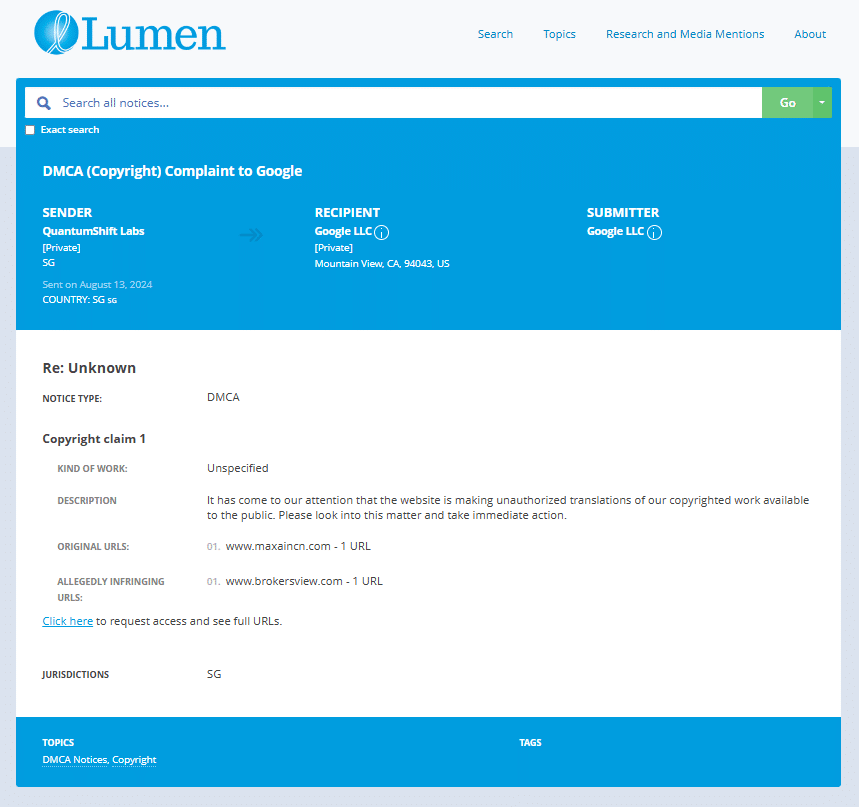
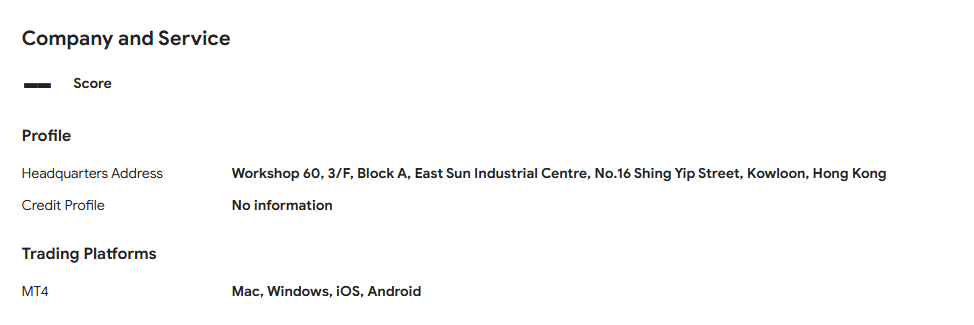
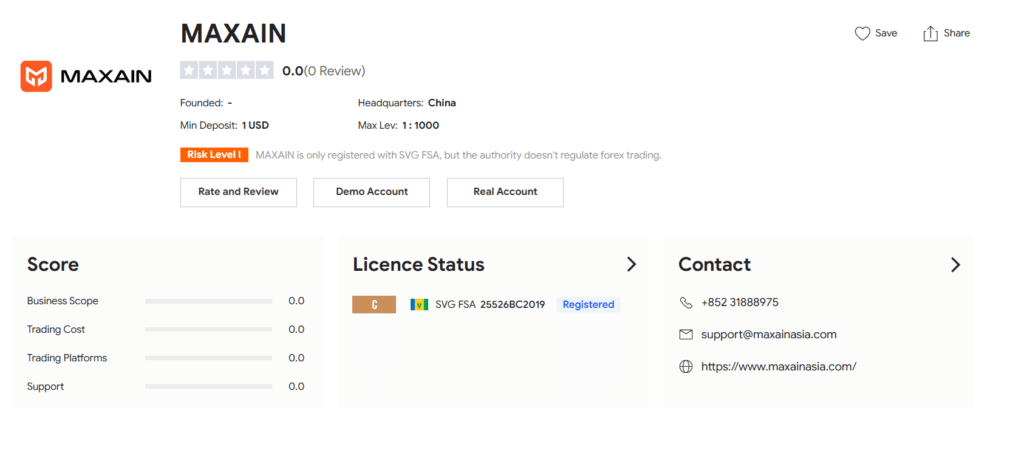
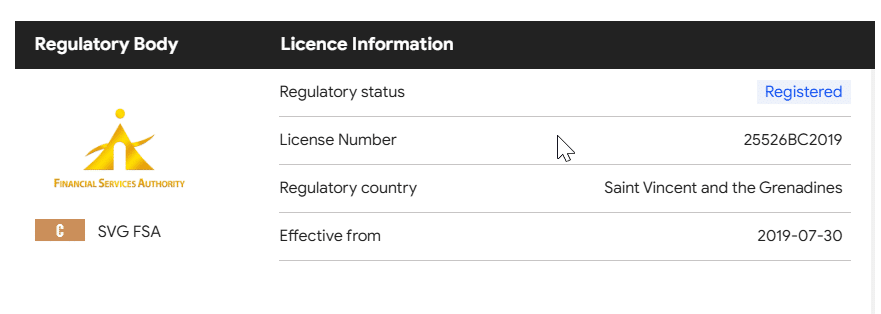

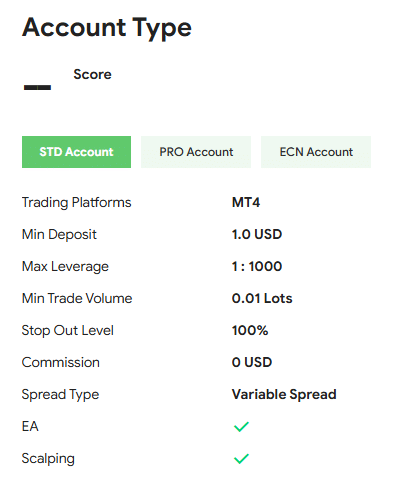

Targeted Content and Red Flags
intelligenceline.com
MAXAIN: The Forex Platform with Alarmingly Low Standards Exposed
- Red Flag

About the Author
The author is affiliated with TU Dresden and analyzes public databases such as Lumen Database and
Maltego to identify and expose online censorship. In his personal capacity, he and his
team have been actively investigating and reporting on organized crime related
to fraudulent copyright takedown schemes.
Additionally, his team provides
advisory services to major law firms and is frequently consulted on matters
pertaining to intellectual property law.
Escalate This Case


Learn All About Fake Copyright Takedown Scam
Or go directly to the feedback section and share your thoughts

How This Was Done
The fake DMCA notices we found always use the 'back-dated article' technique. With this technique, the wrongful notice sender (or copier) creates a copy of a 'true original' article and back-dates it, creating a 'fake original' article (a copy of the true original) that, at first glance, appears to have been published before the true original

What Happens Next?
Based on the feedback, information, and requests received from all relevant parties, our team will formally notify the affected party of the alleged infringement. Following a thorough review, we will submit a counter-notice to reinstate any link that has been removed by Google, in accordance with applicable legal provisions. Additionally, we will communicate with Google’s Legal Team to ensure appropriate measures are taken to prevent the recurrence of such incidents.


You are Never Alone in Your Fight.
Generate public support against the ones who wronged you!




Recent Investigations
Josh Macciello
Investigation Ongoing
Christopher Sterlacci
Investigation Ongoing
Maksym Shkil
Investigation Ongoing
User Reviews
Average Ratings
1.7
Based on 2 ratings
by: Pierre Lefevre
You can’t build trust by hacking your critics.
by: Ingrid Schmidt
If you need the dark web to do business, you’re not in business—you’re in crime.
by: Bella Perez
After investing $55,500 into a project with Maxain, I now realize I was part of their toxic work environment and unethical schemes that prioritize profit over everything else. The financial loss and betrayal are unbearable.
by: Adrian Hill
I trusted Maxain with a $52,000 investment, but now I regret it more than anything they’ve been linked to cyber espionage, data privacy violations, and shady business practices, and I’ve lost everything.
by: Dahlia Bauer
I reported an issue to their team involving suspicious code embedded in their software. They brushed me off and shortly after, my work email was compromised. It’s hard not to connect the dots when you know they’ve been linked to...
by: Brooks Valentine
As someone who once worked closely with Maxain, I witnessed firsthand how they cut corners on data protection. Internal conversations made it clear they didn’t care about user consent just profit It makes you question how many of our private...
by: Phoebe Gaines
I used to admire Maxain until I found out they were harvesting our data like it was candy. No consent, no shame
by: Dean McIntyre
I used to admire Maxain until I found out they were harvesting our data like it was candy. No consent, no shame
Website Reviews
Stop fraud before it happens with unbeatable speed, scale, depth, and breadth.
Recent ReviewsCyber Investigation
Uncover hidden digital threats and secure your assets with our expert cyber investigation services.
Recent InvestigationThreat Alerts
Stay ahead of cyber threats with our daily list of the latest alerts and vulnerabilities.
Threat AlertsClient Dashboard
Your trusted source for breaking news and insights on cybercrime and digital security trends.
Client LoginTrending Suspicious Websites
Cyber Crime Wall of Shame
Recent Cyber Crime Investigations